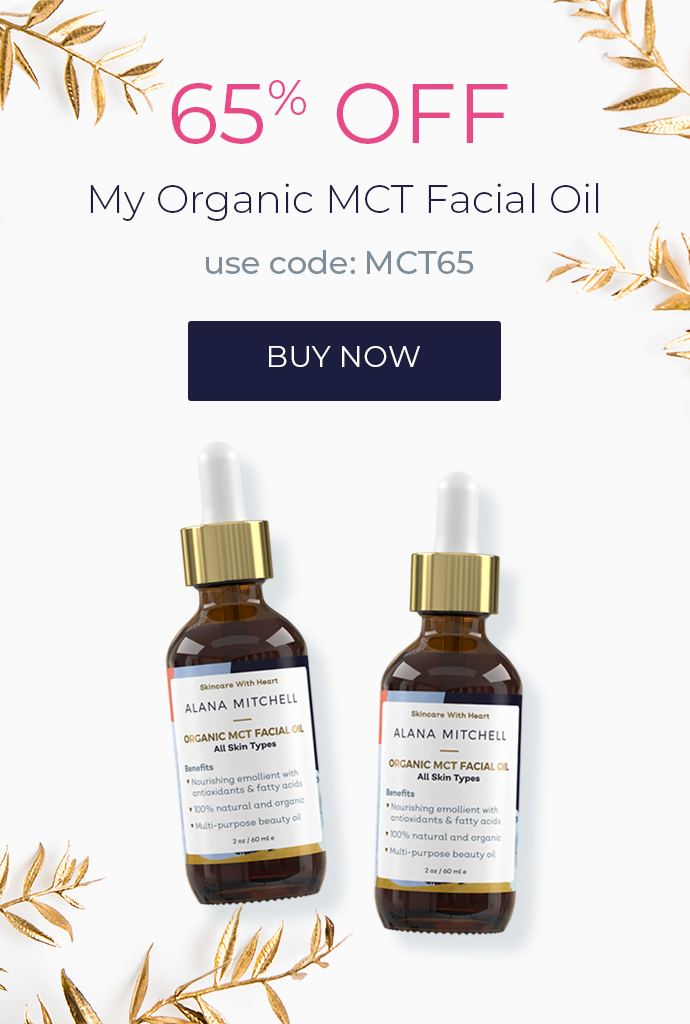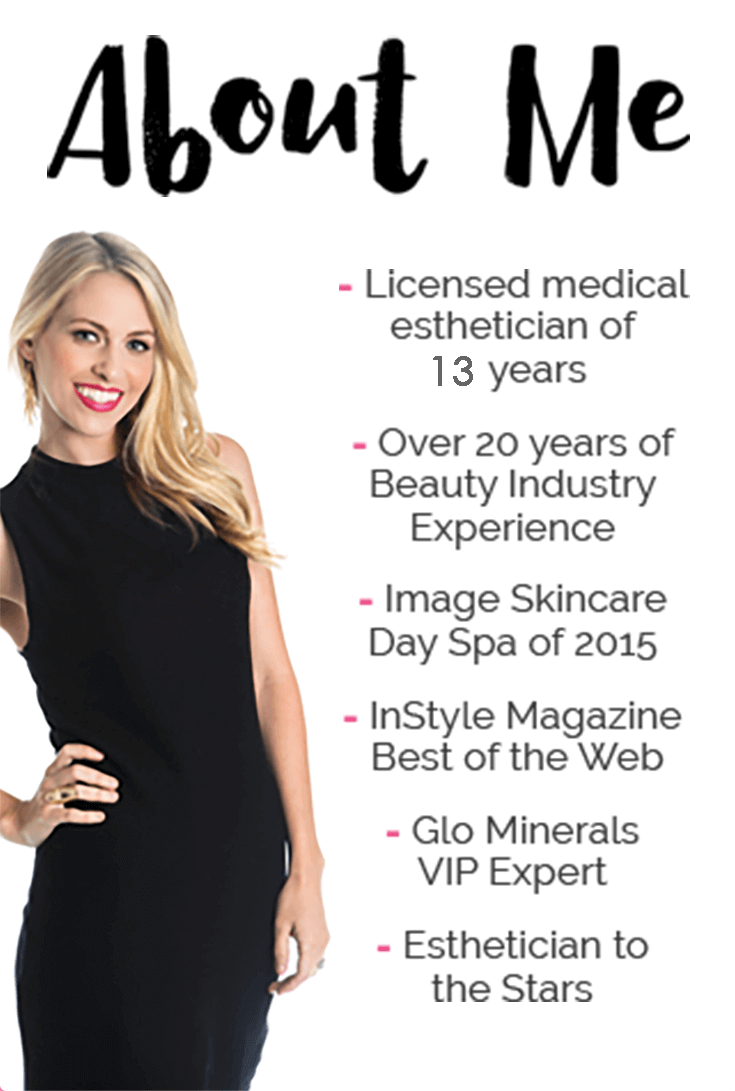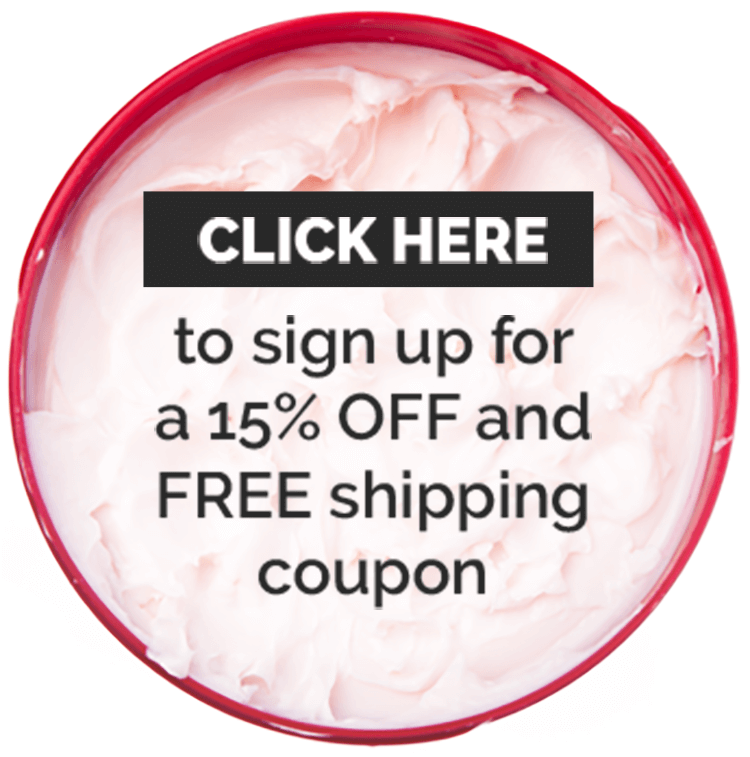What Should You Be Using In Your Skin Care Routine?
Take my quiz and get personalized recommendations from a
licensed esthetician!
Why Essential Oils Are THE Ideal Natural Skincare Ingredient
If you've been reading my blog for a while, you know that I'm a big fan of essential oils.
They have so many uses and are great for DIY projects.
I talk about them quite often as they're some of my absolute favorite skincare ingredients!
I have personally hand-selected some to be used in my own skincare products.
And it appears that they're catching on as more people are hearing about their benefits.
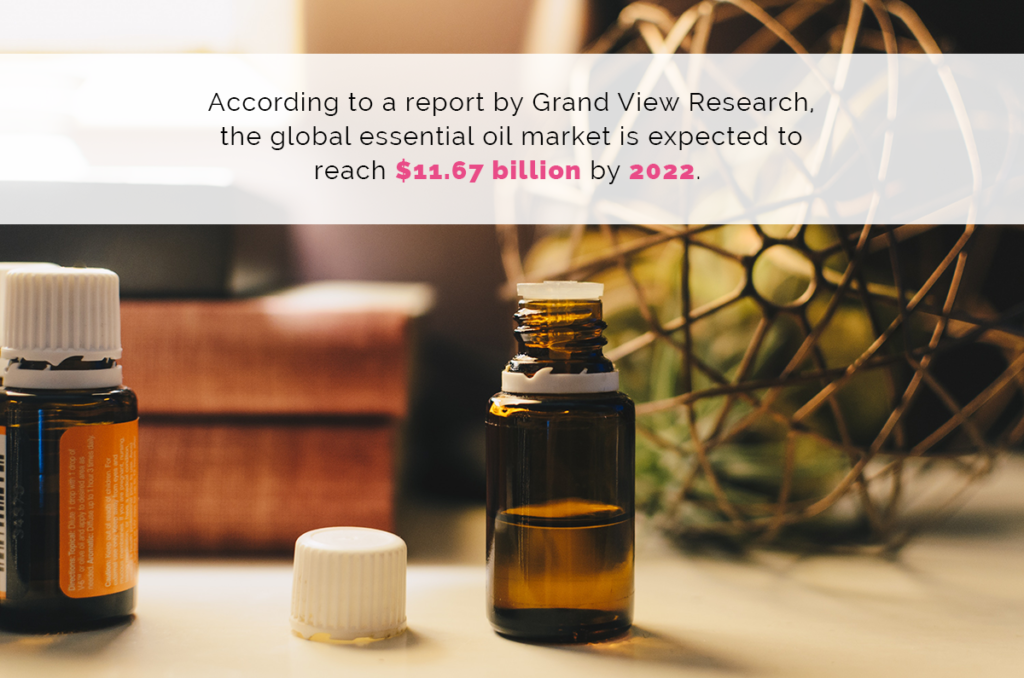
But how do they have so many benefits? Why are they getting so much attention now if they've been used for thousands of years? Are certain ones better than others?
Let's dive into exactly why essential oils are being used in skincare and what you should know about them.

What Are Essential Oils?
Essential oils are natural oils from different parts of plants, including the flowers, leaves, bark, and roots.
Depending on the plant, they're obtained by:
- Distillation
- Steaming
- Expression
- Cold-pressing
- Extraction
Essential oils are volatile, which means they evaporate quickly and don't actually feel oily.
They have the oil-soluble chemicals in the plant (usually 100-200).
They have a potent fragrance that is characteristic to plant they're derived from.
This is where the word "essential" comes from - the oil contains the "essence of" the plant's fragrance.
Essential oils have been used in wellness and medicine practices for about 5,000 years, starting in ancient Egypt.
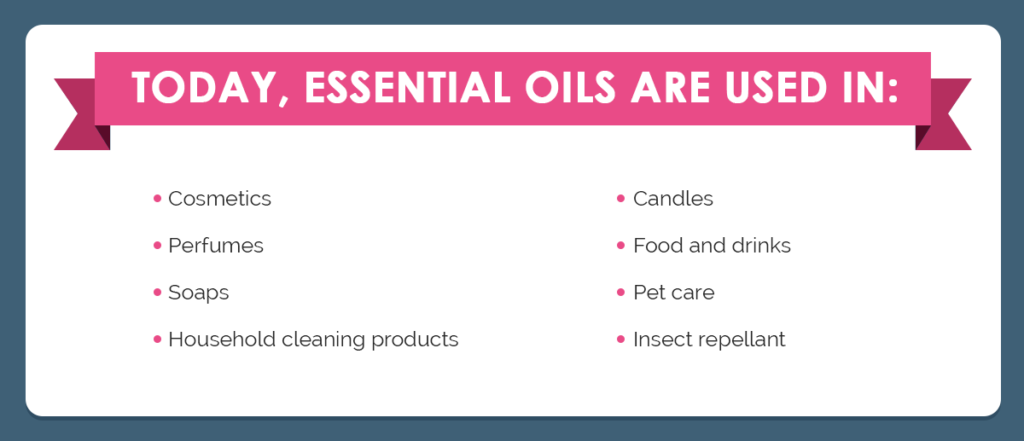
Many people use essential oils in DIY projects at home as natural alternatives to chemical ingredients.
How to Use Essential Oils
Essential oils can be applied directly to the skin or inhaled.
Ingestion is not recommended.
You can apply essential oils topically using carrier oils, compresses, or sprays, or during a bath or massage.
They make their way into the bloodstream and are carried throughout the body.
Massage and heat, in particular, can increase circulation to your skin, improving its ability to absorb essential oils.
Some research says that essential oils may be more readily absorbed from places with greater concentrations of sweat glands and hair follicles, such as the head, soles, palms, and armpits.
Perhaps their most popular use is in aromatherapy, a practice that uses essential oils and other aromatic compounds to improve psychological and physical well-being.
They can be inhaled through steam, diffused in the air, or burned as incense.
During inhalation, odor molecules travel through the nose and affect the limbic system (AKA the "emotional brain").
Smells often trigger emotions because of the brain's connection to our heart rate, memory, stress levels, and hormone balance.
Essential Oil Quality
A lot of plant material is used to make a single jar of essential oil.
It takes more than a million rose petals to make an ounce of rose oil, and one barrel of frankincense oil is worth hundreds of thousands of dollars.
Combine this with high consumer demand, and companies may add fillers or synthetics to essential oils to cut corners.
This means a cheaper price and greater consistency.
However, essential oils with a synthetic chemistry won't work the same way as all-natural.
So - you guessed it - high-quality, pure essential oils will be on the pricey side.
However, they're so highly concentrated and so little is required for use that you can consider them a long-term investment.
The bottom line, as with many skincare-related topics, is to do your research.
Whether you buying essential oils, be sure to read any info provided.
Consider the following points:
- Is the name of the country where the plant(s) were grown provided? Quality can vary due to environmental factors.
- Is there a statement about quality? Is the oil organic? You should be informed if the oil is or isn't 100% pure.
- Is the cost similar to other brands? If the price of the oil is significantly lower, it's probably made with synthetics.
- Packaging and storage: Essential oils should be packaged in tightly closed, dark glass container and stored in a cool place. I recommend writing the date on the bottle after you first open it. Oxidation rates vary, but most essential oils can be safely used for 1-2 years after opening. Their chemical composition can be altered with exposure to heat, light, or oxygen.

Essential Oils and Your Health
Like supplements, straight-up essential oils aren't regulated by the FDA.
However, the FDA considers "aromatherapy products" either cosmetics or drugs, depending on their intended use.
It makes these decisions on a case-by-case basis by looking at how the product is marketed, the claims made in the labeling, on websites, and in advertising.
If a product with essential oils is only intended to cleanse the body or to make a person more attractive, like a body wash or a perfume, it's a cosmetic.
Cosmetics don't have to get FDA approval before they go on the market.
If a product is intended to treat or prevent disease, it's a drug.
For example, drug claims are "ease pain," "relax muscles," "help induce sleep," and "treat depression or anxiety."
Such claims are sometimes made for soaps, lotions, and massage oils containing essential oils.
So, yes, some products are both cosmetics and drugs.
Drugs must get FDA approval for safety and effectiveness before they go on the market.
Companies get around this by using abstract words like "vitality" and "balance."
I know there's a lot to take in!
So, to sum up: Although essential oils aren't regulated, the FDA still enforces guidelines and restrictions about how they're marketed (specifically about health claims).
For example, a company can't say an essential oil product treats, prevents, or cures cancer.
Additionally, advertising claims are regulated by the Federal Trade Commission.
Room fragrance systems (diffusers, candles) are the responsibility of the Consumer Product Safety Commission.
There are a couple of agencies abroad that have helped set essential oil quality standards: AFNOR (Association Francaise de Normalisation) and ISO (International Organization for Standardization).
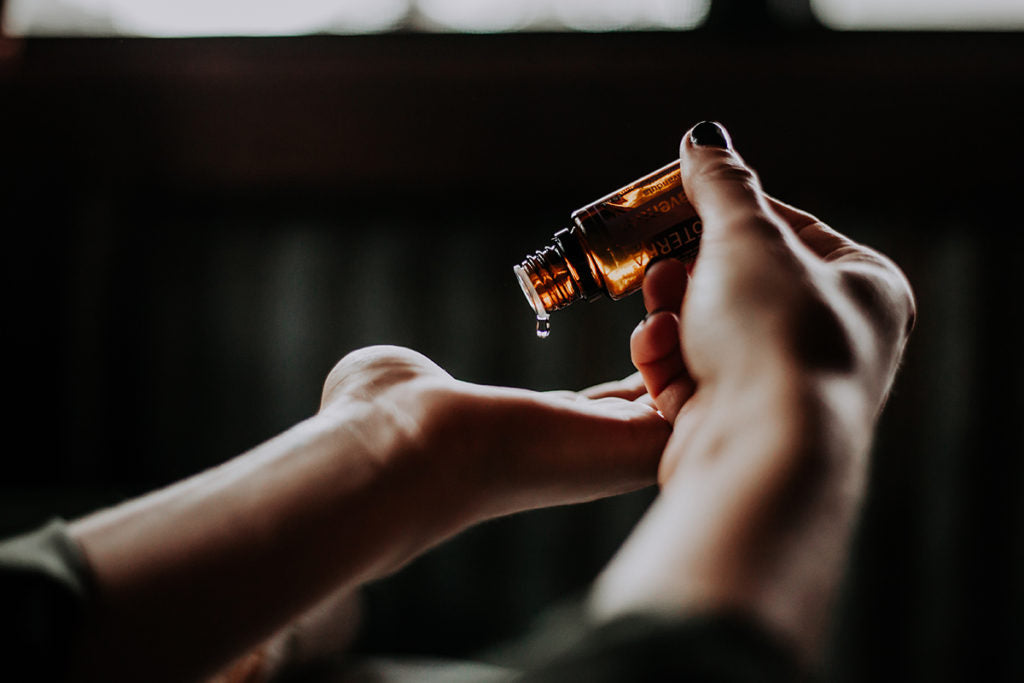
Cautions
Essential oils can be too strong to apply undiluted to the skin.
You may experience an allergic reaction or skin irritation.
The most common way to safely dilute essential oils for topical use is a carrier oil, which I'll talk about more in a minute.
I recommend doing a 24-hour patch test with your essential oil and carrier oil of choice.
Many oils are considered safe to use on skin during pregnancy, but I recommend checking with your doctor first.
Carrier Oils
Carrier oils don't evaporate or have a strong scent; they reduce the concentration of the essential oil without changing its therapeutic qualities.
(Bonus: They moisturize the skin while delivering the benefits of essential oils.)
You can use vegetable or nut oil, or water and should use a 3-5% solution.
This means 3-5 drops of essential per teaspoon of carrier oil.
For a massage or all-over body application, use one drop of essential oil in one teaspoon of carrier.
Below are some of my favorite carrier oils to use when you want to apply essential oils directly to your skin.

My Favorite Essential Oils
Below are my personal faves for skincare that I chose to include in my own products.
Keep on reading to find out what they do and why I picked them!
(Bonus: They make my products smell good without having to add artificial fragrance.)
- Reduces the appearance of acne, stretch marks, and scars
- Antiseptic properties
- Helps to prevent skin infections
- Calms redness
Used in: Night R1 Retinol Facial Oil, Daily Vitamin C Moisturizer, Daily OC Cream Cleanser
- Balances oiliness
- Soothes inflamed or irritated skin
- Moisturizing
- Antiseptic properties
Used in: Night R1 Retinol Facial Oil
Peppermint
- Cooling and soothing
- Balances oiliness
- Offers a refreshing and tingling feeling
- Stimulating; increases blood flow
Used in: Lip Repair Balm, Moisturizing Lip Gloss
- Anti-inflammatory, antiseptic, and anti-bacterial properties
- Regulates skin functions
- Heals wounds and acne
- Generally considered non-toxic and non-irritating
Used in: Daily OC Cream Cleanser
- Rich in antioxidants to reduce signs of aging
- Stimulating; increases blood flow
- Anti-inflammatory and antiseptic properties
- Soothing and cooling
Used in: Foaming Pumpkin Cleanser, Brightening & Exfoliating Anti-Aging Masque

Essential Oil Skincare DIY
Below are some of my favorite everyday uses for essential oils, or if you want to treat yourself or give a friend a homemade gift!
Lavender Coconut Oil Salt Scrub
- 2 cups coconut oil
- 1 cup Epsom salt
- 20 drops lavender essential oil
Put contents into a small bowl and mix together with a spoon.
Store in a container with a lid and seal tightly until ready to use.
Peppermint Foot Rub
- 2 tablespoons jojoba oil
- 1 teaspoon vinegar
- 1/2 teaspoon peppermint essential oil
Mix ingredients together; stir well.
Pour a small amount into your palm and massage into feet.
Natural Bug Spray
- 1/2 cup witch hazel
- 1/2 cup apple cider vinegar
- 40 drops of a combination of the following essential oils: eucalyptus, lemongrass, citronella, tea tree, or rosemary (do not need all)
- 1 spray bottle
Mix ingredients in the spray bottle.
Spray all over the body, avoiding the eyes and mouth.
My Favorite Products with Essential Oils

GM Collin Essential Oil Complex

Ilike Organic Skin Care Glycolic Medlar Rejuvenating Treatment

Dermalogica Antioxidant HydraMist

Tuel Detox Healing Essential Oil Blend
Final Thoughts
While essential oils may not be a cure-all, I feel that they deserve the hype they get.
They're truly great natural multitaskers!
Again, just remember to do your research and use them correctly.
You can find a trained aromatherapist, herbalist, or naturopathic doctor to learn more about use for your specific needs.
Now you know more about why I've chosen to use essential oils in my skincare products!
Beauties, are you a fan of essential oils? What are your favorite uses for them? Have you seen positive skin changes after using them in products? I'm curious to know!
Top Brands
New Brands

Recent Posts

Are You Taking the Right Steps to Care for Your Skin?
Take the Quiz
Skincare Secrets!
10-step guide for healthy, beautiful skin after kids.
100% privacy. I will never spam you!



